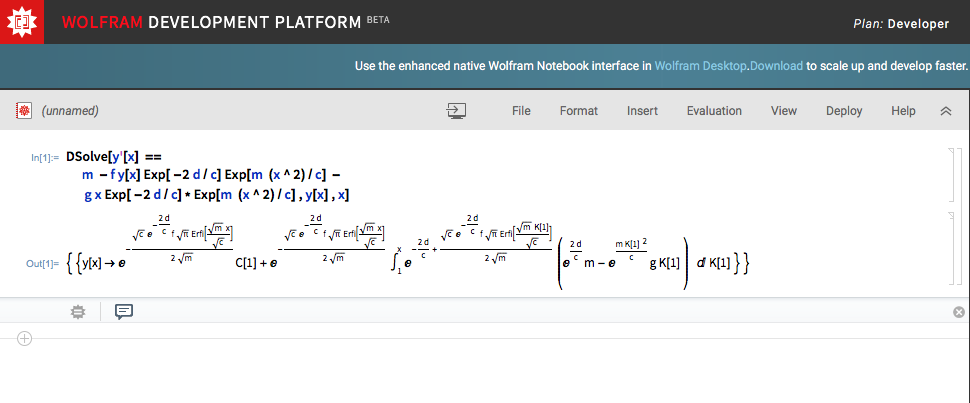Dear Peter,
There are several problems with the way you type the equation in, e.g. no spaces between variables/parameters etc. But even if you fix that, WolframAlpha does not seem to like this integral. Mathematica gives a solution:
DSolve[y'[x] == m - f y[x] Exp[-2 d/c] Exp[m (x^2)/c] - g x Exp[-2 d/c]*Exp[m (x^2)/c], y[x], x]

As you see the solution still contains an integral and you will have to be more concrete to get a (perhaps numerical?) solution, such as
DSolve[y'[x] == m - f y[x] Exp[-2 d/c] Exp[m (x^2)/c] - g x Exp[-2 d/c]*Exp[m (x^2)/c] /. {m -> -1, c -> 1, g -> 1 , d -> 1, f -> 1}, y[x], x]
(*{{y[x] -> -x + E^(-((Sqrt[\[Pi]] Erf[x])/(2 E^2))) C[1]}}*)
If you do not have access to Mathematica, I would suggest using a free tier of the Wolfram Cloud, which solves the integral as well.

Cheers,
Marco
PS: Sorry Mariusz for the double posting, I must have been typing when you posted your reply.